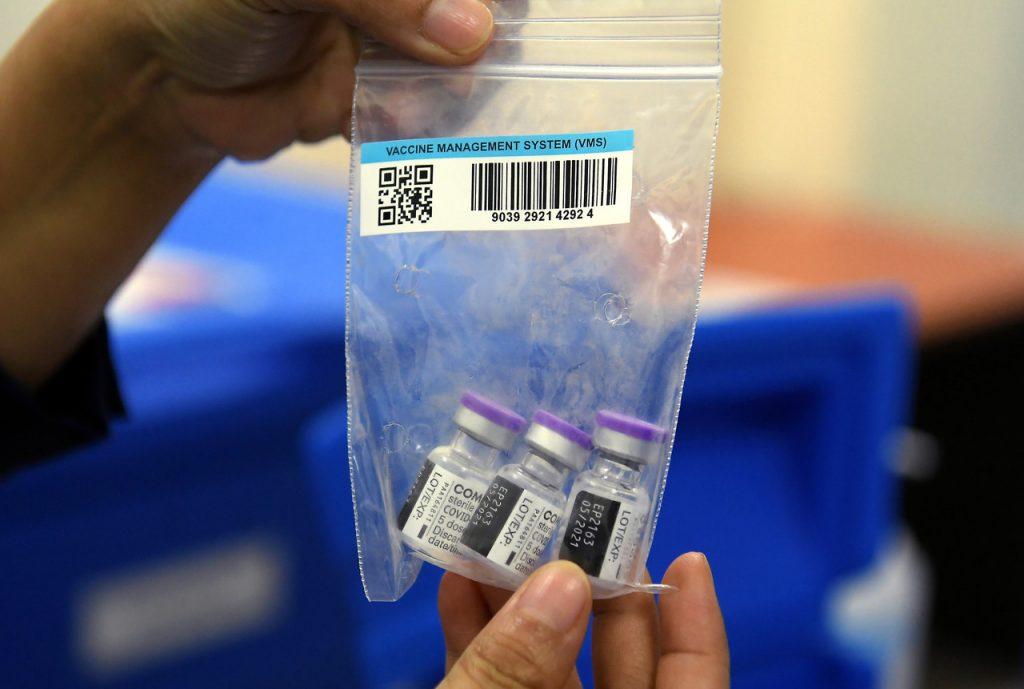It’s not just about patent rights, expert says on ways to make Covid jabs cheaper
India's Serum Institute offers a good example of overcoming the problem of vaccine exclusivity during the current health emergency.
Any move to suspend intellectual property (IP) rights for medical innovations to fight Covid-19 could be a double-edged sword, an expert says in the wake of a global debate on ways to bring down the cost of battling the pandemic.
Sri Sarguna Raj, a lawyer who specialises in IP, said while suspending or removing protection for IP rights could lighten a major financial burden in the war against the virus, it would also mean taking away a proven method of incentivising new inventions, especially in today’s critical area of vaccines and medical equipment.
Then again, Sri said, medical equipment such as vaccines are complex products and suspending or removing IP rights might not be the best approach to address the issue of making it accessible to the poorer parts of the world.
“The main obstacle in the production of these vaccines and therapeutics is the adequacy of the production facilities, infrastructure, and know-how,” Sri told MalaysiaNow.
Recent data quoted by The Economist said half of the world’s supply has been reserved for just 15% of its population.
Last year, India and South Africa mooted a proposal to the World Trade Organization (WTO) to temporarily suspend some parts of its Agreement on Trade-related Aspects of Intellectual Property Rights (TRIPS). The move subsequently obtained support from some 100 developing and less wealthy nations as well as from eminent individuals.
The call has gathered support again as wealthy countries begin to take delivery of much-needed Covid-19 vaccines.
It has also led to a growing trend of what is known as “vaccine nationalism” where governments, mostly from the developed world, hoard vaccines for their own populations.
Recent data quoted by The Economist said half of the world’s supply has been reserved for just 15% of its population.
“The 54 richest countries account for 18% of adults on Earth but 40% of vaccine orders – enough to give each of their adults 2.5 two-dose regimens,” the magazine said.
IP laws ensure that the person who registers a claim to exclusive rights for an invention has the right to prevent others from copying or replicating it without permission.
Early this month, 28 organisations urged Putrajaya to suspend the enforcement of such laws to help make vaccines cheaper and to benefit the developing world.
Recently, WTO chief Ngozi Okonjo-Iweala urged members as well as the European Union to end export restrictions on vaccines and other medical products needed to combat the Covid-19 pandemic worldwide.
IP laws ensure that the person who registers a claim to exclusive rights for an invention has the right to prevent others from copying or replicating it without permission.
But Sri said there are other ways to address the concerns of those calling for a suspension of IP rights for Covid-19 innovations.
“The supply and demand issue can be achieved through voluntary licensing, non-exclusive licences and technology transfer agreements instead of suspending IP rights,” he added.
Compulsory licensing is permitted under the Malaysian Patents Act 1983.
This helps deal with instances where the patentee registers a patent in Malaysia but does not manufacture the product in the country, preventing others from doing so or manufacturing limited quantities in order to command a higher price.
Sri said a compulsory licence would allow parties other than the patentee to exploit the patent in a number of situations without the consent of the patent owner.
The current public health emergency offers a good argument for this.
Sri said the possible threat of the compulsory licensing regime could pressure patentee companies to allow non-exclusive licences or technology transfer agreements.
This is similar to what drug giants AstraZeneca and Novavax have established with the Serum Institute of India, the world’s largest manufacturer of vaccines for common diseases in the developing world such as hepatitis B, measles, mumps and rubella.
The company is now said to be producing one billion AstraZeneca doses for low and middle-income countries, and has pledged to deliver 240 million doses in the first half of this year through the Covid-19 Vaccines Global Access, or Covax.
Sri said Article 31bis of TRIPS allows countries producing generic medicine under a compulsory licence to export medication to countries with limited domestic capacity.
TRIPS is a global agreement on intellectual property between WTO member states.
“TRIPS lays down minimum standards in patent law which all WTO member states are required to comply and harmonise with their respective local laws,” said Sri.
Subscribe to our newsletter
To be updated with all the latest news and analyses daily.
